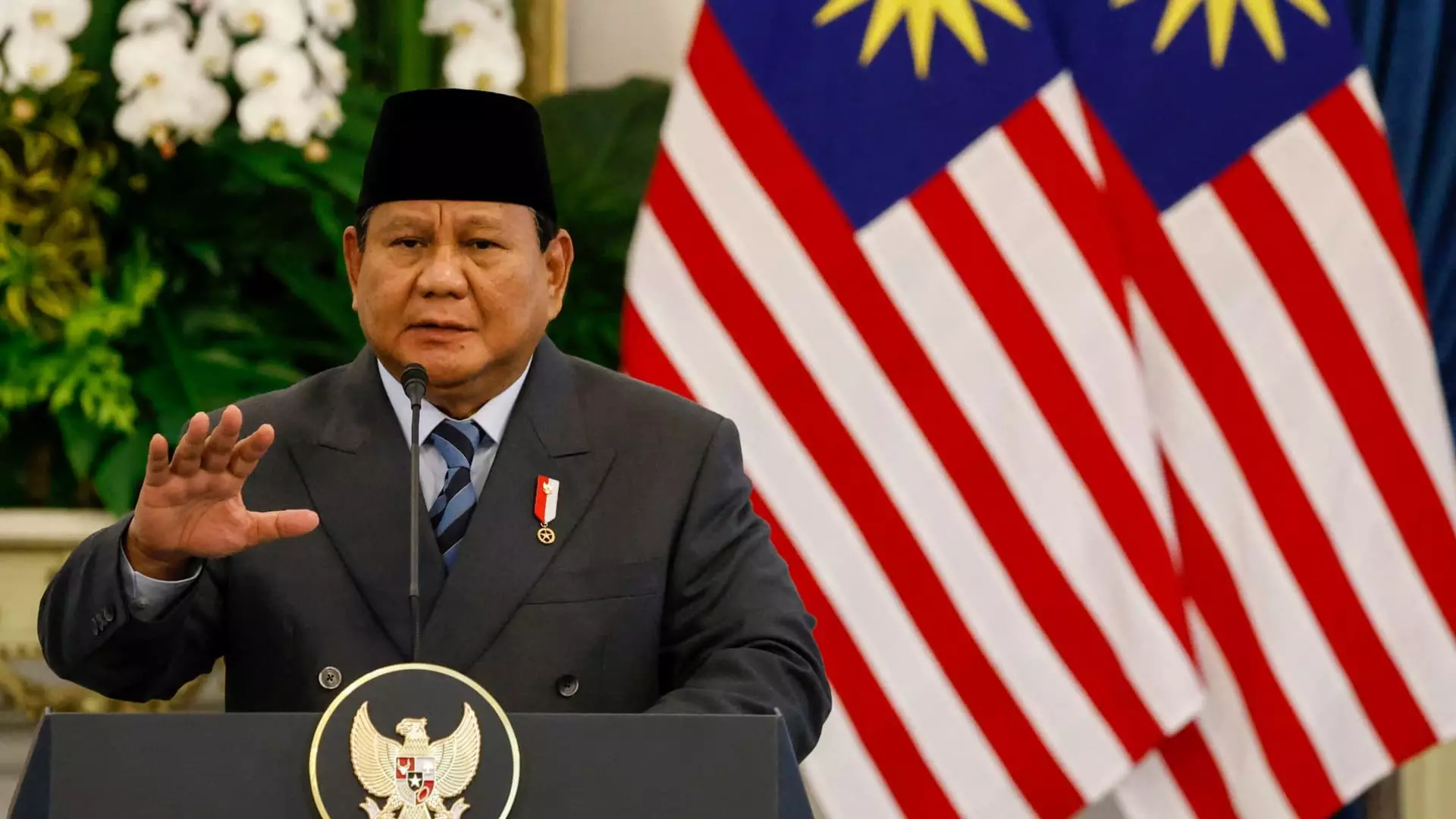The recent announcement of a trade agreement between the United States and Indonesia should invite skepticism rather than celebration. While officials laud it as a step toward “reciprocity,” the reality reveals a more disturbing picture of favor-driven diplomacy that ultimately deepens inequality. The U.S. appears eager to carve out advantageous access in Indonesia’s market—yet there is a glaring disparity in how the terms are framed. The proposed tariffs, pegged at 19%, may sound like a reduction from Indonesia’s initial 32% duties, but they still serve as a barrier to genuine free trade and equitable exchange.
Rather than fostering true mutual benefit, this deal exemplifies a transactional mindset where U.S. interests almost entirely dictate the terms. The narrative of “reciprocity” masks the underlying imbalances that favor American economic dominance. If the goal were genuine fairness, negotiations would prioritize eliminating barriers on both sides equally, not merely adjusting tariffs to fit political convenience. The current framework plays into the myth that economic imbalance favors the U.S., yet it risks entrenching exploitation, ensuring that the playing field remains tilted in favor of American companies.
Superficial Gains Mask Structural Issues
The supposed benefits touted—aircraft purchases worth billions and energy imports—are more symbolic than substantive. They are essentially corporate deals dressed up as diplomatic victories, rather than initiatives rooted in genuine development or mutual growth. These commercial arrangements perpetuate the dependency of developing countries like Indonesia on imported goods from the U.S., undermining local industries and economic sovereignty.
Moreover, the emphasis on “non-tariff barriers” as a point of negotiation signals that behind closed doors, the U.S. continues to protect its own markets with complex requirements that stifle Indonesian businesses rather than foster fair access. This approach disregards the broader global trend toward liberalized trade, choosing instead to negotiate deals that reinforce existing power structures. Such tactics are nothing but portents of a future where developing nations are pushed further into economic subservience, rather than becoming equitable partners.
The Illusory Promise of Fair Competition
The narrative spun by U.S. officials frames this deal as a victory for American producers—claiming that fair access to Indonesian markets will be balanced by protections for domestic industries. Yet, this perspective ignores the reality that American corporations often benefit from these arrangements at the expense of local economies. The focus on “digital services” — a sector increasingly dominated by giant American tech firms — demonstrates that the real prize is expanded market share rather than shared prosperity.
Furthermore, the White House’s selective highlighting of smaller deals in Vietnam and the Philippines raises questions about transparency and consistency. With tariffs looming on other trade partners, this pattern reveals a strategy rooted not in sincere global cooperation but in tactical maneuvering. It’s difficult to view these agreements as authentic efforts to create inclusive economic growth when they are subordinate to U.S. political aims and corporate interests.
Center-Left Critical Perspective: A Call for Responsible Engagement
From a center-wing liberal standpoint, this development warrants serious critique. It exposes how trade policies continue to prioritize American corporate gain under the guise of diplomacy. The underlying assumptions about free markets and reciprocity are often just smokescreens for neo-colonial economic practices. Instead of championing fair trade, these agreements serve as tools to maximize U.S. leverage, often at the expense of societal benefits abroad.
There is a pressing need for more responsible and equitable approaches to international trade—policies that genuinely aim to uplift developing nations, protect local production, and foster sustainable growth. The current trajectory, exemplified by the Indonesia deal, risks perpetuating economic disparities and consolidating a global order where power is concentrated in the hands of a few. If the goal is to forge alliances rooted in mutual respect and shared prosperity, these superficial deals must give way to more transparent and community-centered negotiations, not just strategic wins for multinational corporations and political elites.

